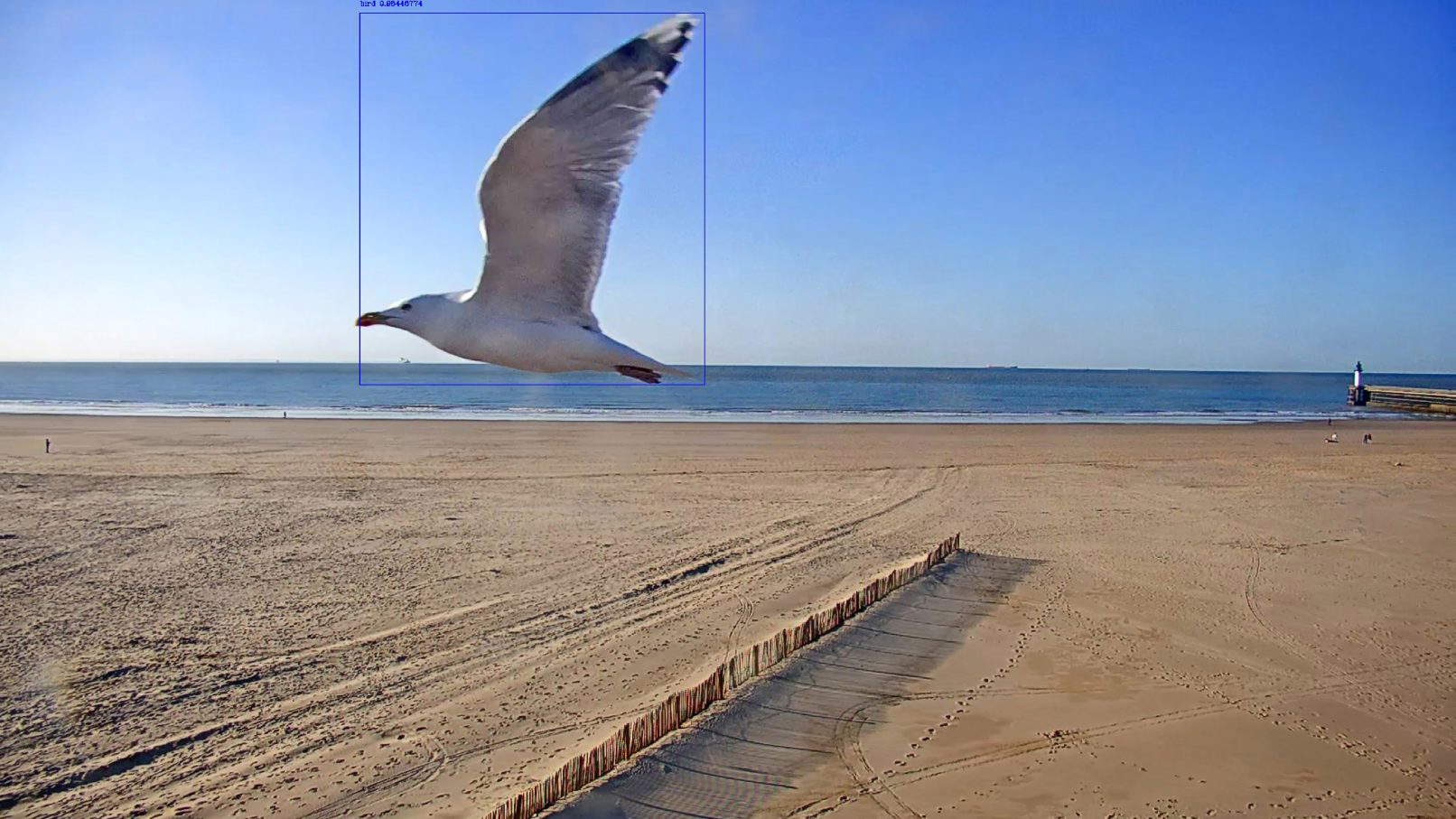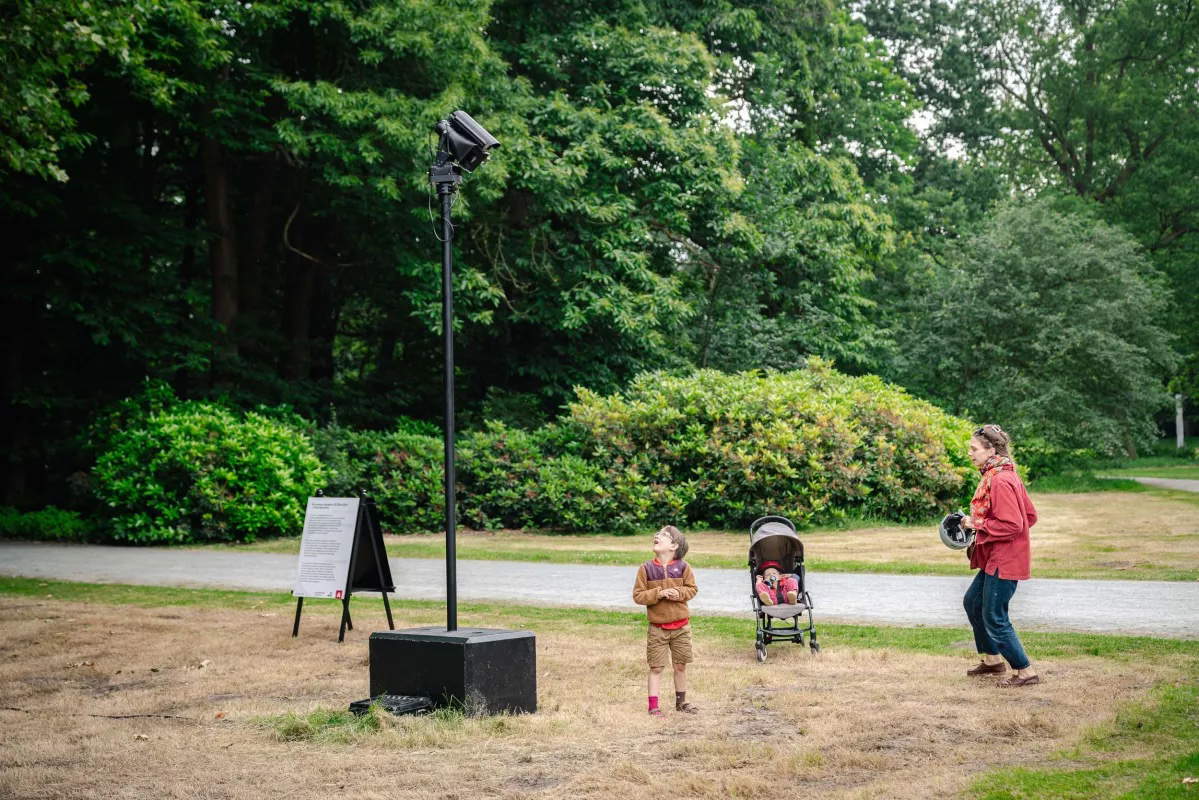It will be open from September 17 to 28, 2024 at the Salaborsa Library in Bologna, When they see us, an exhibition on the impact of tracking in the physical and digital space of our onlife lives. The exhibition is curated by thecultural organization Sineglossa and promoted by the associations The Good Lobby and Hermes Center for Digital Rights and info.nodes. When they see us is also the first initiative of The Next Real, a series of events that Sineglossa curates in Bologna on art, artificial intelligence and society. The exhibition addresses the theme of digital rights, reflecting on the risks of AI and the threats of biometric surveillance, through installations by Belgian artist Dries Depoorter (1991), and some works from The Glass Room Misinformation Edition project by research group Tactical Tech. Opening the exhibition will be a talk given by Depoorter, together with philosopher and essayist Franco “Bifo” Berardi and Federico Bomba, artistic director of Sineglossa, moderated by Antonella Napolitano of Hermes Center. In his works, Dries Depoorter invites the public to take an active and critical attitude toward systems of control in public space, suggesting the need for a choice between acting responsibly or becoming performing machines.
Among the works in the exhibition, the installation Jaywalking (2015-2024), gives the user the ability to press a button and thus send an e-mail to the nearest police station, signaling a pedestrian who recklessly steps out of the crosswalk. Surveillance speaker (2018-2024) uses tools in the field of computer vision software. The work reads images transmitted in real time from a camera placed on top of a pole, thanks to an AI system. Border birds consists of images depicting birds crossing borders between certain countries around the world, captured with open cameras and artificial intelligence. For the project, Dries Depoorter and his sister Bieke developed software that captured more than 3,474 birds through different cameras on the borders between Mexico and the United States, Morocco and Spain, Greece and Turkey, and France and England.
On Sept. 25 atBiagi Auditorium, Sineglossa, in collaboration with Cineca, is organizing the panel discussion What is an author - Creating with generative artificial intelligences. The event discusses the consequences of producing works of art through artificial intelligence on the philosophical and legal notion of authorship by paraphrasing Michel Foucault’s lecture. Guests who will dialogue on the topic include Giovanni Leghissa, a philosopher at the University of Turin who is among the most brilliant Foucault experts in Italy; Maurizio Lana, digital humanist at the University of Eastern Piedmont; artists Francesco D’Isa, Roberto Fassone and Kamilia Kard; and writer Wu Ming 2. The roundtable is organized under the patronage of the Municipality of Bologna, carried out as part of the European projects GRIN S+T+ARTS and EUROPEAN DIGITAL DEAL, co-financed by the European Union.


“The exhibition as a whole thus proposes a reflection on the ethical implications of a mechanical gaze that observes, analyzes and judges,” explains Federico Bomba, president of Sineglossa. “Until now, in fact, being able to recognize one another among similar beings has been considered a meaningful experience reserved for living beings, capable of making one’s peers close, familiar. With the implementation of artificial intelligence algorithms in biometric technologies, the ability to recognize and be recognized from one’s own characteristics, whether physical or behavioral, passes to be an ability of machines as well.”
“With this exhibition, we wish to bring the debate about the risks inherent in the use of surveillance technologies outside the circles of experts or activists where it usually takes place,” says Martina Turola, communications manager at The Good Lobby. “Through the Reclaim Your Face campaign, which was launched years ago to protect our freedoms of movement and protest and our privacy from the intruvisibility of biometric recognition systems, we realized in fact how critical it is to make sure people know the implications associated with the use of these technologies. We think that art can contribute substantially to provoking a conversation in society, especially when it is able to interactively engage its audience, as in the case of Depoorter’s works, which cause us to put ourselves in the shoes of potential overseers or surveilled and act accordingly.”
“The speed with which artificial intelligence has gone from being a futuristic technology to a commonly used tool forces us to think broadly about its implications and social fallout. What is particularly frightening is the potential in terms of surveillance and control,” argues Davide Del Monte, director of Hermes Center. “The regulatory boundaries that allow the use of biometric recognition systems in public spaces, first and foremost the recent European regulation on artificial intelligence, are too weak - and too late - to allow real protection of people. This is why greater awareness in the citizenry is essential, and they must be able to recognize the risks and abuses and develop collective actions to strengthen protections for all and sundry.”
Dries Depoorter (1991) is a Belgian artist who works with technology. His eye-catching and humorous works address issues such as privacy, social media, artificial intelligence and surveillance. His creations include various products such as apps, games and interactive installations. He studied electronics for six years and then enrolled in an art school. Today Dries Depoorter exhibits and lectures internationally and works as a freelancer dealing with digital processes. Dries has exhibited at the Barbican London, Art Basel, Mutek Festival Montreal, Bozar, Para Site Hong Kong, Mozilla The Glass Room San Francisco, IDFA Doclab, Mundaneum, FOMU, Ars Electronica, NRW, World Press Photo, WIRED25, HEK. Dries has lectured for TEDx, MoMA, SXSW, Chanel, Adidas, Mutek Festival, STRP festival, Dutch Design Week, and web2day.
Tactical Tech an internationally active creative nonprofit organization that develops and shares insights, tools and experiences to empower communities around the world to navigate and shape our collective social, political and environmental future in the context of an increasingly digital world.
Admission: Tuesday, 17/09: 7-8 p.m.; Wednesday, 18/09 - Friday, 20/09: 9 a.m.-8 p.m.; Saturday, 21/09 from 9 a.m.-7 p.m.; Monday, 23/09: 2-8 p.m.; Tuesday, 24/09 - Friday, 27/09: 9 a.m.-8 p.m.; Saturday, 28/09: 9 a.m.-7 p.m.; Sunday, closed.
 |
| How much do tracking systems impact our lives? In Bologna, an exhibition reflects on the issue |
Warning: the translation into English of the original Italian article was created using automatic tools. We undertake to review all articles, but we do not guarantee the total absence of inaccuracies in the translation due to the program. You can find the original by clicking on the ITA button. If you find any mistake,please contact us.